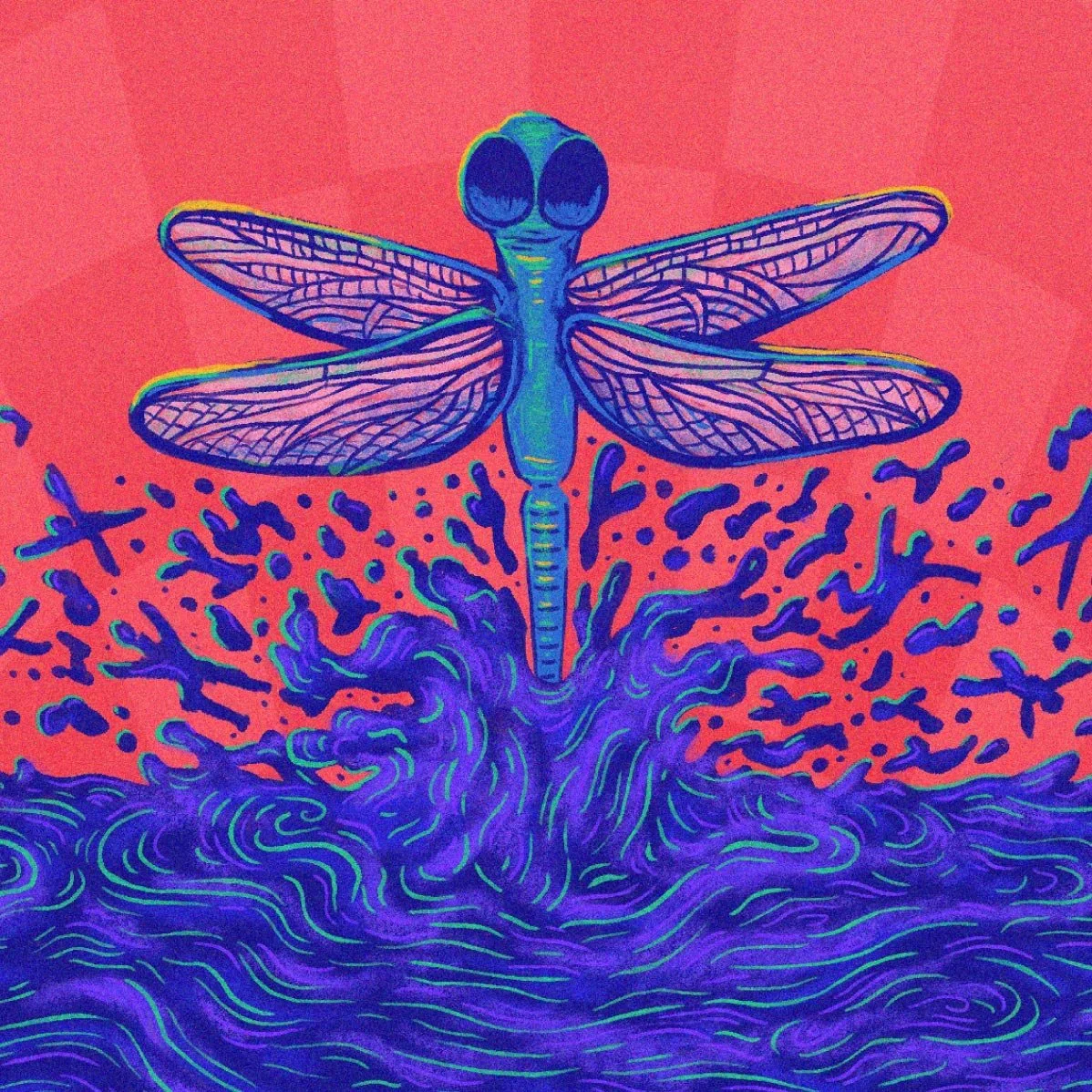In Conversation with Angela Fama II
/Angela Fama’s What is Love is on view until May 14th at Burrard Arts Foundation, and it is not for the faint of heart. The audiovisual product which was born from the several month long project Fama undertook last year is playing on a loop in the back room, where viewers are greeted with projections of portraits and audio of Fama’s interviews with hundreds of people. What is love? She asks, some subjects not offering more than a few words in response. Companionship. Unconditional. Some subjects tell stories about the loss of loved ones, and how grief and pain changed shape inside them, sometimes never subsiding.
Fama spent thousands of hours in organizing, executing, and editing What is Love, and the time invested is obvious. However, spending days upon days with humanity’s most intense and carefully guarded emotions forced the artist to be very present, and at times, too close for comfort.
Be sure to read part one of SAD Mag's interview with Fama, too.
SM: You came away with a tangible work that can be exhibited, but the real impact of the project was in each of those people–
AF: Exactly. I’ve touched all of those lives now, and they will take that with them forever now. Even if they spend one more minute thinking about that experience in their entire lives, that is worth so much more to me than something hanging on someone’s wall in the living room.
They’re taking it with them.
SM: Coming away from the project, do you think that love is a feeling or a choice?
AF: There was a shockingly large amount of people saying love is unconditional, and commitment, and choice. Not the word itself, choice, but unconditional–meaning you choose to stay through the hard times. It’s not fun and roses. You’ve committed to loving that person.
But on the flip side, a lot of people said, emotion. It’s all about our bodies, our emotions, some people would come in and say, “it’s my dog, Bowe.” That’s as far as it went. One woman came in and just said, “it’s a feeling!” And then squealed a bit. Like the sound of chills.
SM: Did you notice any trends amongst different groups?
AF: No. Well, yes, in the southern states, but it may have been skewed by exactly where I was and who I was talking to, which was immediately dictated by what I had access to. There was a lot of God talk in the southern states. I was attached to a really loving organization that was attached to a church, so I got to speak with a choir. For me, that was wonderful, because I’ve got blocks up with organized religion. So when I was in that space, I was really after how everyone was feeling and I got to see a lot of really beautiful loving words with so much intention for how to give and receive it underneath the title of “God”. Through the project I have heard so many different words for “God".
I felt so grateful for that. I decided, I’m gonna ask you about this. You said “God,” what do you mean by that? I’m coming from this place of having walls up–what does God mean for you? And we had some beautiful conversations where I was shown despite my own assumptions the intention that came with loving a God. It was coming from the core, base of love.
A huge facet of the project was to perceive differences and connect communities past that. That’s why I went to so many places. I was shocked off the bat by my own differences. One guy from Regina came in and totally wowed me. We were in a lower-income area, this man came in and without even knowing I had done it, I had assumed he’d be a certain way… he came in and displayed so much instant, incredible wisdom. It was really neat.
In other places, I expected one thing and I got exactly that thing. And then other times, it totally shocked me. Every place was so different–if I spoke to ten people, I got one person that would fit into each category of being what I had expected and nothing I could have expected. I got the whole range.
SM: Connected through differences–given that even the variations between people were so consistent.
AF: I can guarantee that everyone–and this is the beautiful part–everyone can find something of themselves through this project. It’s an audiovisual experience. I can play it without the visual and you would be surprised. I can generally mimic a person pretty easily, but with this one, it took me outside of that. We can have animalistic traits that are pretty consistent, but the depths of people... You just can’t know a person unless they choose to share. It was pretty fuckin’ cool.
SM: Is this the rest of your life now? Are you going to do this again?
AF: Oh God, no. I’m still recovering. It took me a week to recover from my very first one day project. Now, I feel incredibly naive about how that was such a learning curve for me. I went underwater–and I’m happy I did–but I feel like I’m just starting to surface now. But I know there’s another project, and it’s even bigger, and even deeper. It’ll take me a few years to get ready for that one.
After How Are You, I took a year to recover from that. But I saw that connect people across nationalities. With a bit of sadness, I’ll say, when I was heading out, I wanted to talk with other cultures–but I didn’t as much as I would have liked, not really. Not because I didn’t try, but because people of obvious different language or nationality didn’t necessarily trust me at first glance/in passing - I don’t think - when I was set up at some spots where there was a bunch of different nationalities and culture groups nestled in their separate spaces.
There was no familiar face or person to help set up a trusted initial dialogue about what the project was about even to consider it and I believe if I had that, or more time, that could have been better accomplished. Before I left, I thought about that to myself and let myself be okay with that–I can be open and inviting to all and only touch what comes to me. That’s beautiful and impactful in itself... It doesn’t detract from what I can share.
But I do also want to focus on questioning and sharing across nationalities, and this next one is as big as it gets.
SM: I guess it’s not ideal to come out of a project feeling totally debased, but What is Love is such a valuable thing to sink yourself into.
AF: I feel like, if you’d talked to me six months ago, I wouldn’t have been able to share in that. But it feels like I’ve come full circle. I had a friend tell me today that I had so much love emanating out of me before I went, but that everything ebbs and flows. The subject matter is way deeper than I ever imagined, so it’s a part of my learning process. But that’s the point!
SM: If you had come away from this project and been able to say, “well, this is precisely what love is! I know everything about love!” There would’ve been a gross injustice done to the gravity of the project.
AF: I feel like I have to hold a certain amount of strength, too–this snowball which grew and grew is now essentially telling me what to do. It’s cost me so much money. It’s cost me my savings, plus my Kickstarter. And I’m presenting it in a way that isn’t necessarily sellable.
To show it in such a way that allows people to experience a bit of what I experienced–it’s not a beautiful print. It’s bizarre. I feel like it’s so fucking beautiful that of course it’ll cost that much. I know I’ll recover, and I’ll be happy that this thing was born, but right now, I’m a bit like, “oh my god.”
SM: You have to finish now!
AF: People have told me that I can just stop, if I want. But I can’t! I really can’t. It would be a spiritual suicide in a way, because everything I’ve ever done in my life has taken me here.
SM: With a project of this size, too, I feel like there must be a massive number of obstacles that you had to overcome.
AF: Oh my God. Every step of the way, it was like, “oh great! My camera has decided to break, and I’m in the middle of shooting right before an art talk in Athens, Georgia! Cool!” There’s nowhere to go, I have no resources here, so I have to just buy a new one.
It was like that the whole way. Who knew a 1977 RV should have air conditioning if you’re trying to drive through the desert in the middle of the summer? Who knew you needed one tiny little thing on your radiator to change the temperature so that it doesn’t explode repeatedly? Who knew!
I thought I covered my bases before I left, but every step of the way, I feel like I was given a challenge that could have potentially stopped the project. An unexpected source of assistance I had in that path was the willingness and openness that I found from the people that sat with me. Not one person didn’t go further within themselves during our conversations.
SM: It’s impressive to get through all of that and still be breathing on the other side.
AF: A few friends of mine actually lent me what I like to call their "air masks" for about four or five months after I got back. I was barely breathing. Two weeks after I got home, everything just fell away. I was totally in awe.
You know when you’re going through a hard time, and everything tilts up, and you see the light for a second, and then it dips back down again?
But now, I’ve started to find the beauty in the fact that I’m still breathing. It didn’t kill me. It almost did, I mean...
I encountered some really brave people. I had releases from everyone, but there was three people that I went back to after the fact and I checked with them. My brain said, they signed the release! They were fine with it the day of, too. But I had so much respect for the people that were sharing that I wanted to double check. Some of that sharing was really fucking raw. But that’s why I was doing it, of course.
Images from Fama's What is Love (2015). This interview has been edited and condensed.









